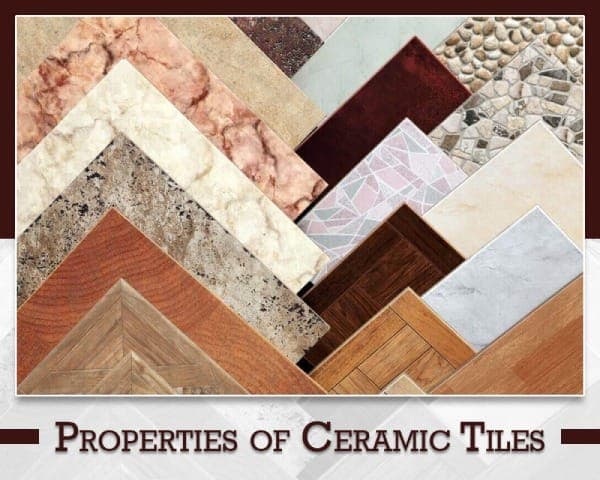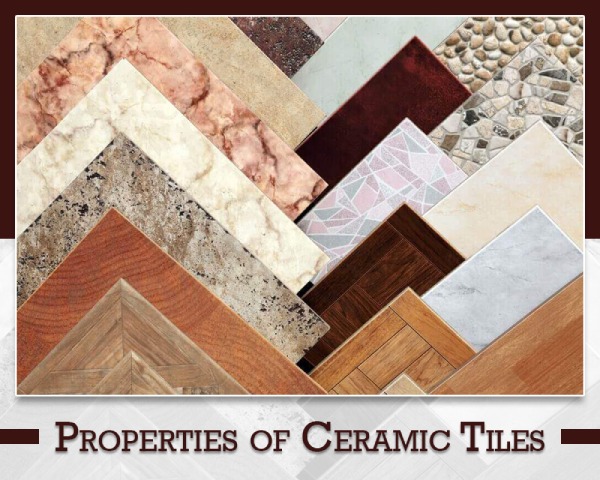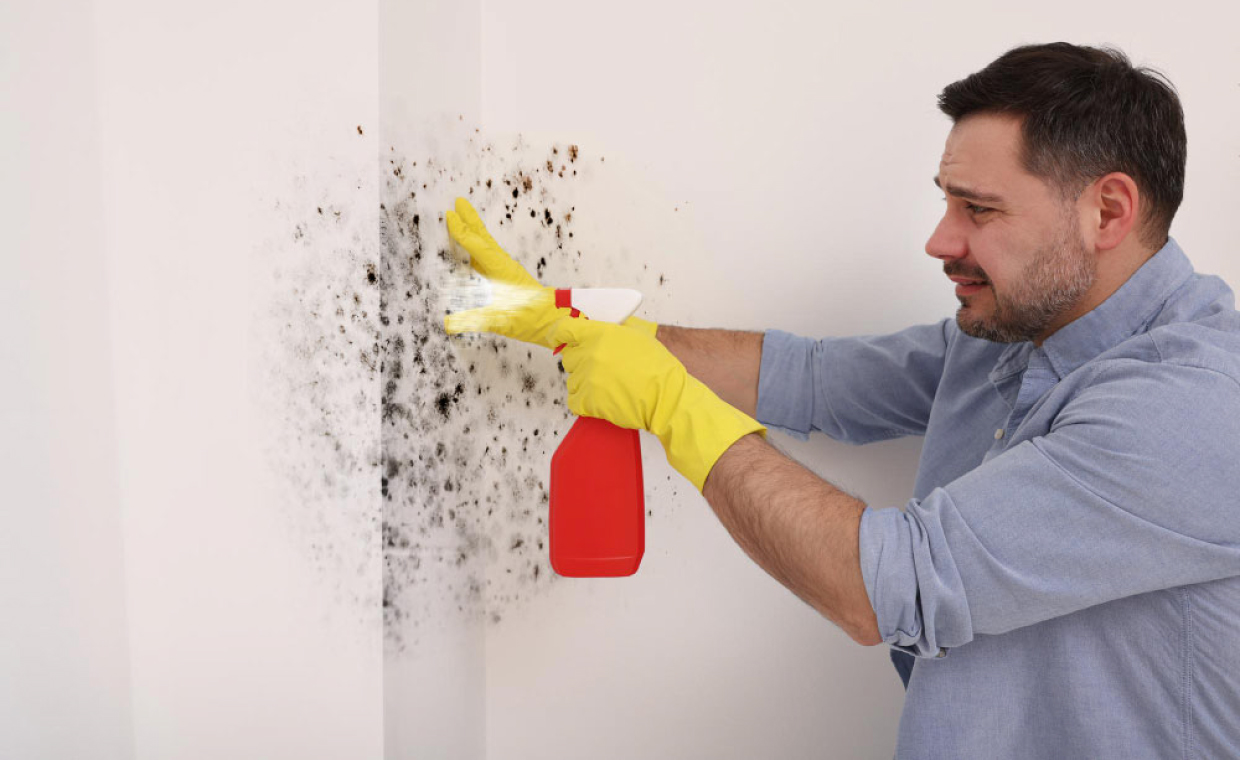
Ceramic tiles are one of the most popular types of tiles used in building homes, offices, and public buildings. In India, Spartek is the pioneer in ceramic tiles; no wonder, many people call it as ‘Spartek Tiles’. According to the ‘Donald Watson’ (Author of Time-Saver Standards for Building Materials & Systems), ceramic tiles are made up of a mixture of clay (finely-grained natural rock or soil material) and water.
So, what are ceramic tiles used for? These days, advanced forms of ceramic tiles are designed with specific building purposes in mind. Such tiles give the interiors and outdoors a unique identity. Ceramic tiles are quite versatile and can be used to refurbish floors and walls. For instance, you can use advanced digitally-printed designer tiles for the flooring of your living room, bedroom, or kitchen. Because ceramic tiles properties include high resistance to water, they can be effectively used for the wet areas of your home like the kitchen and bathroom.
Ceramic tiles should not be selected based on just designs, colour, and looks. Though these factors are important, you should also pay attention to the technical properties of ceramic tiles, such as durability, dirt resistance, water absorption, frost resistance, slip resistance among others. Tiles ones installed will be used regularly; hence, you don’t want to ignore these factors. These ceramic tiles properties are what will determine the life of your tiles and their maintenance.
Every type of ceramic tile has a unique set of properties, making them suitable for a specific kind of project. For instance, if you compare ceramic tiles vs vitrified tiles, the latter is known for its glossy look and less water absorption compared to ceramic tiles. Knowing such differences can help you make an informed decision when undertaking a home improvement or construction process. This will not only help you use your money wisely but also save you a lot of heartburn and hassles in the future.
Here is a detailed post on the types and properties of ceramic tiles.
Types of Ceramic Tiles
01. Glazed Ceramic Tiles
Glazed ceramic tiles have a unique texture owing to the liquid glass coating on its surface. This coating is given during the firing process and it protects the tile from staining. Glazed ceramic tiles are available in a wide variety of styles and colours. Due to their less porous nature and ability to add a vibrant appeal to the decor, glazed ceramic tiles can be used in various areas of your home.
02. Unglazed Ceramic Tiles
Unlike the glazed variety, these tiles do not undergo the additional firing process in the kiln. They are denser and thicker than glazed tiles and highly slip and scratch-resistant. However, since they are porous in nature, they are susceptible to stains. Since unglazed tiles do not go through the firing process to get a coating, they are mostly available in earthen colours.
To know more about ceramic tiles, read Basic Things to Know about Ceramic Tile
Properties of Ceramic Tiles

The range of ceramic tiles size, type, and designs available in the market can make it tough for homeowners to make a suitable choice. Most people have little information in this regard. For instance, you may be wondering, are porcelain or ceramic tiles better? Or, what are ceramic tiles used for? Knowing the properties of ceramic tiles can help answer these queries and doubts. So, here we go!
01. Durability
Ceramic tiles are dense and less brittle. Hence, they are quite durable. If installed properly, they can last for more than two decades. It makes a good walking surface.
02. Strength
Regardless of the ceramic tiles size you use, these tiles have high strength. Since these tiles are made by heating a mixture of clay and other additives at high temperatures, they are dense and strong. According to the Indian Council of Ceramic Tiles and Sanitaryware, ceramic tiles have a flexural strength of 22N/mm2 and breaking strength 200N.
03. Dirt Resistance
Ceramic tiles do not retain dust and residues as easily as many other flooring surfaces like mosaic tiles or terrazzo. Regular cleaning using the common household materials can retain their look and finish, evading the need for any additional polishing or buffing. They are resistant to acids and alkalies and do not retain dirt, dust, or any other residue. Thus, ceramic tiles are stain-resistant and fairly easy to clean and maintain.Rapid removal of yellowish stain on ceramic tiles using this tile cleaner:
04. Colour Permanence
The colour is induced on the glazed ceramic tile surface during the firing process. Even in the case of unglazed tiles, the pigment is fired into the tile body at a high temperature. Therefore, the colours rarely fade even after prolonged exposure to sunlight. Thus, ceramic tiles retain their colour for a long time.
Also Read: How to Choose Tile Colour According to Your Room Colour Scheme?
05. Slip and Skid Resistance
Unglazed ceramic tiles have greater slip resistance than glazed ceramic tiles as they are devoid of the liquid glass coating. Therefore, they are highly recommended for areas subjected to high foot traffic and water spillage.
Many glazed and unglazed ceramic tiles have an abrasive grit on their surface, increasing their slip resistance significantly. Further, several manufacturers use a variety of glaze additives and patterns to enhance the tiles’ skid resistance. Such tiles are best suited to public areas with direct access to the outdoors and in bathrooms.
06. Fire Resistance
Ceramic tiles are fireproof at any temperature. One of the main reasons for this is that they are fired at 1900° C. Hence, these tiles will neither burn nor fuel a fire. Also, its surface will not alter or emit toxic gases, smoke, or fumes in case of a fire.
Moreover, ceramic tiles are excellent insulators. Their specific heat is about 0.12 which is ideal for air-conditioned rooms.
07. Hygiene
The surface of ceramic tiles does not retain moisture, antigens, or allergens. Further, it does not absorb fumes, odour, or smoke. Further, as mentioned earlier, these tiles are easy to clean. Thus, ceramic tiles are best suited for places where hygiene is necessary and also a priority. For instance, they can be used for bathrooms and kitchen.
08. Chemical Resistance
Ceramic tiles are highly resistant to harsh chemical agents like alkalis, acids, household chemicals, and swimming pools salts, in high and low concentrations.
09. Stain Resistance
The stain resistance of ceramic tiles depends on its capacity to absorb moisture. Unglazed ceramic flooring has a low resistance to stain. However, glazed ceramic tiles can resist stain easily due to the liquid glass coating. However, oil stains may be difficult to remove.
Also Read: How to Remove Rust Stains from Tiles?
Buy Water and Oil spill proof Wall Stickers Mosaic Tiles Design:
10. Water Absorption
Glazed ceramic tiles are coated with liquid glass and hence absorb less water. Unglazed ceramic tiles are porous and are less moisture resistant. In fact, this is the primary difference between them and porcelain tiles. Porcelain tiles absorb less than 0.5 percent of water. So, if you use unglazed ceramic tiles in the outdoor area, the tiles may develop cracks quickly.
11. Frost Resistance
Unglazed ceramic tiles have less frost resistance because they are porous and absorb water easily. On the other hand, glazed ceramic tiles have relatively high frost resistance.
12. Scratch Resistance
Glazed ceramic tile has low resistance to scratches and abrasions. So, the colour and feature of the ceramic tiles do not remain constant throughout its surface over a period of time. This is especially true when they are subject to hard materials with sharp edges. Unglazed ceramic tiles have better scratch resistance with hardness is about 6-7 on the Mohs scale.
Summing up, ceramic tiles are a popular flooring choice for home and offices. Both glazed and unglazed ceramic tiles have different properties and different uses. The variety of colours, finishes, and designs available in ceramic tiles make it the No. 1 choice for homeowners who desire to accentuate their home decor. You can choose one for your abode based on the ceramic tiles properties shared above.
Besides ceramic tiles, other types of flooring materials like vitrified tiles, and porcelain tiles are available in the market. We recommend you read this post to know about various types of home flooring options before making a final decision. If you still have queries and concerns, share them in the comments sections or feel free to contact us.
Keep reading other articles related to ceramic tiles by referring following links:
Best Practice to Check the Quality of Ceramic Tiles at the Site!
Things to Keep in Mind while Buying Ceramic Tiles
(We earn a commission for the products purchased through some links in this article)
Disclaimer
Products shown/recommended above in the article is only for the purpose of review/understanding. Due to Covid-19, all the third party affiliate programmes have been stopped, so the product may be unavailable for purchase. We, at Gharpedia, not selling these items directly. Hence, Gharpedia is not responsible for the delivery of these items. In this period we would Request you to cooperate with us until further notice.






























